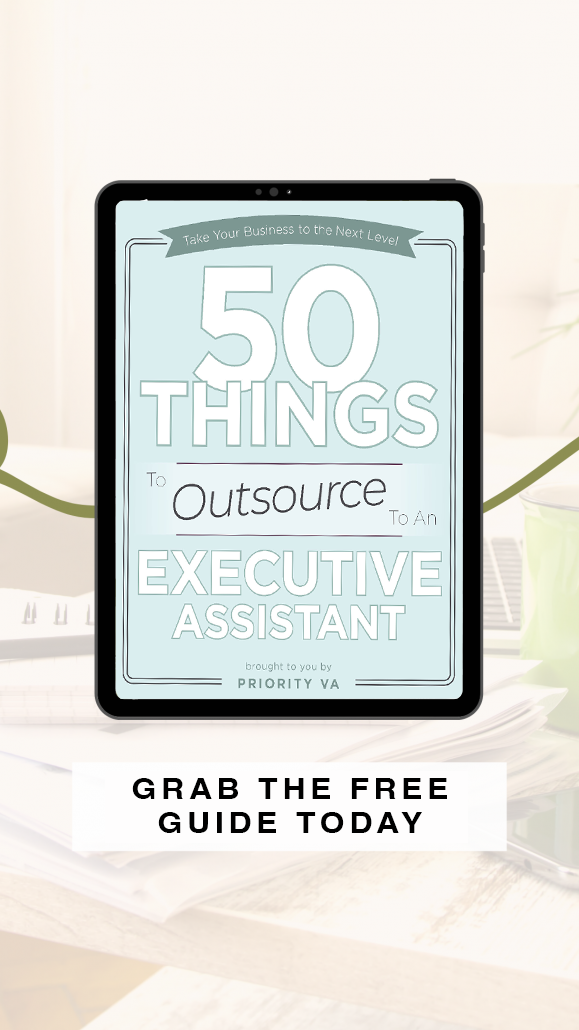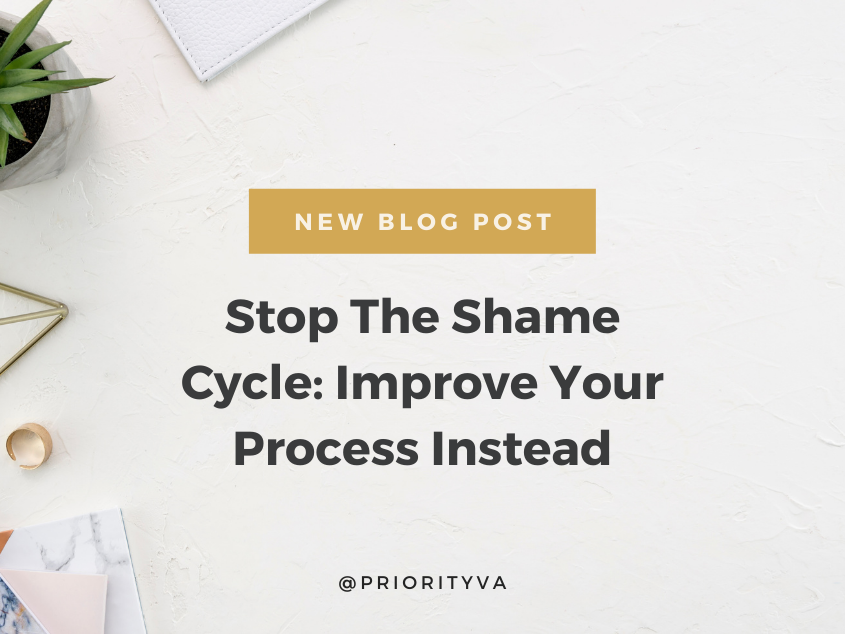Executive Assistants are humans, too. Whether you’ve been an Executive Assistant for six months or six years, mistakes happen and it is important to be ready when they do.
It’s normal to feel terrible about the complications your oversight caused, but the way that you bounce back after a mistake is often more important than the actual mistake itself.
Here are some tips on how to respond if you make an error in your work as an Executive Assistant.
Process Your Feelings
If you identify as detail-oriented, or a perfectionist, you have a strong inner critic. You hold yourself to a high standard and pride yourself on getting things done well.
That’s a good thing!
In the aftermath of a mistake, your inner critic is going to have a lot to say about your abilities. You should allow yourself to feel frustrated, angry or tearful, but try not to dwell in this headspace.
You were a strong Executive Assistant before this mistake, and you will be a strong assistant after this mistake, if you respond appropriately.
When you feel disappointed in your performance, this shows that you care and want to do a good job. But instead of feeling mopey or useless, strive to show yourself grace and allow this to be a learning opportunity.
Assess the Situation
Even with all of your experience and attention to detail, things can go wrong. Maybe you sent a contract with the wrong client name listed, or missed an important deadline that cost your company money.
Before you fire off a chain of emails or Slack messages in panic, you need to pause and assess the situation objectively:
Ask yourself:
- What exactly was the mistake?
- How did it occur?
- What is the result, consequence, or cost of this mistake being made?
- Who are the players involved?
- What is required to make it right again?
- What solution can you propose to solve the problem?
- Can this mistake inspire the creation of a new workflow, system or process?
- Would new process documentation help prevent a mistake like this in the future?
- What learning has occurred from this?
- How can you make sure this doesn’t happen again?
Remember, even small mistakes can have big consequences. Your error may have “only” been a typo in your eyes, but to your Leader, that typo could damage their brand’s reputation in front of a high-paying client. You may not care, but your Leader does.
Every mistake has a domino effect — and your Leader is paying attention. Is this the first time you’ve made a mistake like this? Or are you a repeat offender?
Look honestly at your performance over time. If this isn’t the first time you’ve made this kind of error, what are you doing to demonstrate learning?
Collect all the facts you need in order to make it right.
Propose a Solution
You made the error, which means it is your responsibility to present the problem and your proposed solution to the Executive you serve. If you wait for your Leader to discover a mistake was made, they may worry or wonder, “What else is going wrong that I don’t know about?”
Save your Executive from needless anxiety by owning your mistake and apologizing. Then, objectively explain the error, how it was made, the players involved and your ideas to make it right.
Leaders want assistants to bring solutions to the table, rather than more problems for them to solve.
When an assistant doesn’t own up to their error, acts like the issue isn’t a big deal, or doesn’t understand the consequences to their actions, they put the onus on the Leader to right the wrong, when that is your job.
If your only response is a tearful apology and an acknowledgement that you dropped the ball, “again,” your Leader may question your sincerity. After all, you’ve had this conversation before, right? If you didn’t learn from your mistake the last time, what confidence should your Leader have in you that you’re going to learn from this mistake?
You are only as trustworthy as your word. Don’t propose a solution you cannot follow-through on. Only suggest what you can make happen.
Deliver On Your Plan
You made a commitment to correct your mistake, now go do it. Following through with your plan and being accountable to your actions demonstrates learning and growth-mindedness.
As you deliver on your proposed solution, whether it is a new workflow or process documentation, be open to receiving feedback from other team members or the Leader you serve.
It can take time for a new process to stick. Don’t rush a solution to slap a bandage on the issue. Bring up your proposed changes in your weekly meeting with your Executive. How is the new workflow serving your Leader? How can it be improved?
As you implement your solution, be available to other team members who may have been affected by your mistake. Apologize for the inconvenience it caused and be available to help fix it.
It’s time to stop beating yourself up for making mistakes. Being an Executive Assistant does not mean you should be perfect at everything all the time. You are human after all and are worthy of showing yourself grace, especially if you are sincere in trying to learn and grow from your shortcomings!
As you learn how to bounce back after a mistake, it is important to learn how to process your feelings, assess the situation for any damage that was done, propose an appropriate solution and execute on the plan to make things right.
Save Your Seat
In order to serve your Leader well, we believe you must lead yourself by taking ownership of your actions. You may feel like you are “just” the assistant, but you have more to offer as a trusted and strategic partner.
Our FREE masterclass, “How to Own Your Power and Take the Lead as an Executive Assistant,” was created for assistants who are ready to step-up their game.
This three-part video masterclass series will teach you:
1. Strategies for setting boundaries you’re proud of with a new or existing client. Wouldn’t you like to finally put your phone down, while still being seen as a rockstar in the eyes of the Leader you serve? We’ll show you how, so you can unplug with confidence and without anxiety.
2. Communication tactics for being heard, adding value and driving clarity. If you struggle with hard conversations, or don’t know how to approach your Executive, we’ve got advice to help you take the lead.
3. How to revamp a stale relationship with your Leader, or ensure success with a new partnership. You’ll discover timeless and practical onboarding strategies you can implement right away to realign a tired partnership.
Ready to learn real-world strategies you can implement right away! Sign up here before registration closes!





